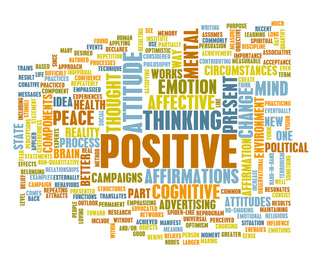Handling Disability-Related Problems

An Asian-American woman with a physical disability, MaryLee Vance, once said that every college student with a disability is a first-generation college student*. Even if your parents or other family members went to college, they probably didn't have disabilities like yours. So figuring out how to solve problems can be tricky...but not impossible.
Most Black disabled students turn to their friends or families first. But here are some other options, with more information at the NCCSD Clearinghouse. You can also contact the NCCSD any time with problems, questions, or to ask for resources.
If it's anything related to disability, talk to your disability services office and try to work out any problem. Don't hesitate to contact the director.
If the problem is with your disability services' office, your degree program, or a faculty member, consider trying to talk to your campus "ombudsman" (the person that mediates between students and staff or faculty). Or talk to the person supervising the disability services office - every campus is supposed to have written "grievance policies" for students who have trouble getting services. Sometimes campuses have an "ADA/504 Compliance Officer" who can assist with problems, but if this person works out of the disability services office, sometimes bias can be a problem.
If the problem is about ableism or racism of faculty members, go to the person in charge of Academic Affairs or the Dean. You should be able to find these people on your college's website. Be sure to bring facts, not just opinions, and whatever documentation you have in writing. Being calm, strong, organized, and mature just makes the prejudiced people look worse and you look better. Sometimes cultural centers (like the African American cultural center or disability cultural center) or EEOC or diversity officers can help, too.
If you think your campus is not paying attention to your problems, contact the Office for Civil Rights in your state. This is how you begin the process of filing formal federal complaint. They will probably ask you to document what is going on, and what documentation you have. If they find something wrong, expect them to offer mediation first.
If you feel overwhelmed figuring out this process, contact the National Center for College Students with Disabilities at AHEAD. And remember, it is illegal for any campus to retaliate against people making complaints, or to refuse services to students because they complain.
* Quote is from page 13 of Vance, M. L. (2007). Taking risks. In M. L. Vance (Ed.) Disabled faculty and staff in a disabling society: Multiple identities in higher education (pp. 11-24). Huntersville, NC: AHEAD. Book is only available through the AHEAD website.
Most Black disabled students turn to their friends or families first. But here are some other options, with more information at the NCCSD Clearinghouse. You can also contact the NCCSD any time with problems, questions, or to ask for resources.
If it's anything related to disability, talk to your disability services office and try to work out any problem. Don't hesitate to contact the director.
If the problem is with your disability services' office, your degree program, or a faculty member, consider trying to talk to your campus "ombudsman" (the person that mediates between students and staff or faculty). Or talk to the person supervising the disability services office - every campus is supposed to have written "grievance policies" for students who have trouble getting services. Sometimes campuses have an "ADA/504 Compliance Officer" who can assist with problems, but if this person works out of the disability services office, sometimes bias can be a problem.
If the problem is about ableism or racism of faculty members, go to the person in charge of Academic Affairs or the Dean. You should be able to find these people on your college's website. Be sure to bring facts, not just opinions, and whatever documentation you have in writing. Being calm, strong, organized, and mature just makes the prejudiced people look worse and you look better. Sometimes cultural centers (like the African American cultural center or disability cultural center) or EEOC or diversity officers can help, too.
If you think your campus is not paying attention to your problems, contact the Office for Civil Rights in your state. This is how you begin the process of filing formal federal complaint. They will probably ask you to document what is going on, and what documentation you have. If they find something wrong, expect them to offer mediation first.
If you feel overwhelmed figuring out this process, contact the National Center for College Students with Disabilities at AHEAD. And remember, it is illegal for any campus to retaliate against people making complaints, or to refuse services to students because they complain.
* Quote is from page 13 of Vance, M. L. (2007). Taking risks. In M. L. Vance (Ed.) Disabled faculty and staff in a disabling society: Multiple identities in higher education (pp. 11-24). Huntersville, NC: AHEAD. Book is only available through the AHEAD website.
Funding for this website was provided by a three-year grant from the Fund for the Improvement of Postsecondary Education (FIPSE), U.S. Department of Education (Grant #PB116B100141).
All images are courtesy of BigStock Photos.
All pages copyright 2013 the HBCU Disability Consortium and the Lawrence B. Taishoff Center at Syracuse University.